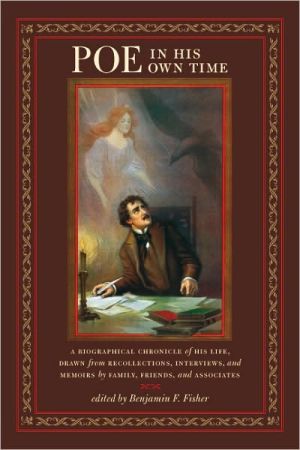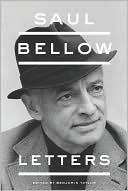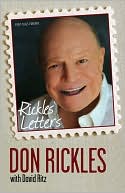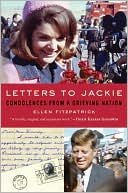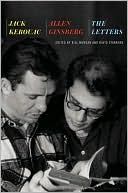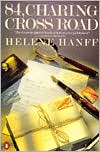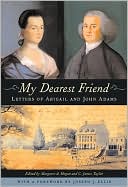Poe in His Own Time: A Biographical Chronicle of His Life, Drawn from Recollections, Interviews, and Memoirs by Family, Friends, and Associates
"An image of Edgar Allan Poe (1809-1849) as a man of gloom and mystery continues to hold great popular appeal. Long recognized as one of the greats of American literature, he elicited either highly commendatory or absolutely hostile reactions from many who knew him, from others who claimed to comprehend him as person or as writer, and from still others who circulated as fact opinions intuited from his writings. Whether promoting him as angel or demon, "a man of great and original genius" or...
Search in google:
Noted Poe scholar Benjamin Fisher includes a comprehensive introduction and a detailed chronology of Poe’s sadly short life; each entry is introduced by a short headnote that places the selection in historical and cultural context, and explanatory notes provide information about people and places. From John Allan’s letter to Secretary of War John Eaton about Poe’s West Point life to John Frankenstein’s hostile verse casting him as an alcoholic, from Rufus Griswold’s first and second posthumous vilifications to James Russell Lowell’s more sensible outline of his life and career, from scornful to commendable reviews to scathing attacks on his morals to recognition of his comic achievements, Fisher has gathered a lively array of materials that read like the most far-fetched of gothic tales.
POE in His Own Time\ A Biographical Chronicle of His Life, Drawn from Recollections, Interviews, and Memoirs by Family, Friends, and Associates \ \ University of Iowa Press\ Copyright © 2010 University of Iowa Press\ All right reserved.\ ISBN: 978-1-58729-863-9 \ \ \ Chapter One\ [Letter about Poe's West Point Matriculation] (1829) \ John Allan\ After taking him as a ward into his own home, John Allan hoped that Poe would enter Allan's own business firm in Richmond. Poe's inclinations toward a literary career, his indiscretions at the University of Virginia, and the temperamental differences between him and Allan serve as background for this letter from Allan regarding Poe's qualifications for entering the military academy at West Point.\ John Allan to John H. Eaton, Secretary of War, 6 May 1829\ Dr. Sir,-The youth who presents this, is the same alluded to by Lt. Howard, Capt. Griswold, Colo. Worth, our representative and the speaker, the Hon'ble Andrew Stevenson, and my friend Major Jno. Campbell.\ He left me in consequence of some gambling at the University at Charlottesville, because (I presume) I refused to sanction a rule that the shopkeepers and others had adopted there, making Debts of honour of all indiscretions. I have much pleasure in asserting that he stood his examinations at the close of the year with great credit to himself. His history is short. He is the grandson of Quartermaster-General Poe, of Maryland, whose widow as I understand still receives a pension for the services or disabilities of her husband. Frankly, Sir, do I declare that he is no relation to me whatever; that I have many [in] whom I have taken an active interest to promote theirs; with no other feeling than that, every man is my care, if he be in distress. For myself I ask nothing, but I do request your kindness to aid this youth in the promotion of his future prospects. And it will afford me great pleasure to reciprocate any kindness you can show him. Pardon my frankness; but I address a soldier.\ [Letter about Poe at West Point] (1884)\ Allan B. Magruder\ The letter that follows, from a contemporary of Poe's at West Point, offers interesting portraiture of Cadet Poe, though some of the romanticizing of his circumstances must have come from the subject himself. To date, no evidential proof that Poe traveled in Europe or the Middle East or that he was a sailor has come to light. A sailor's life, perhaps with travel to some of the overseas regions, may have been actualities in the life of Poe's brother, William Henry Poe. References to travel to foreign countries appear in other biographical accounts based on information supplied by Poe. The letter's being written more than fifty years after Poe's time at West Point may also explain inaccuracies in the correspondent's memory.\ Allan B. Magruder to George E. Woodberry, 23 April 1884\ He was very shy and reserved in his intercourse with his fellow-cadets-his associations being confined almost exclusively to Virginians. He was by several years my senior, and had led a wild, adventurous life, traveling in Europe and the East, and was a seaman, I think, on board a whaler. He was an accomplished French scholar, and had a wonderful aptitude for mathematics, so that he had no difficulty in preparing his recitations in his class and obtaining the highest marks in these departments. He was a devourer of books, but his great fault was his neglect of and apparent contempt for military duties. His wayward and capricious temper made him at times utterly oblivious or indifferent to the ordinary routine of roll-call, drills, and guard duties. These habits subjected him often to arrest and punishment, and effectually prevented his learning or discharging the duties of a soldier.\ [Letter about Commencement of Poe's Professional Literary Life] (1835)\ John P. Kennedy\ Having published three volumes of poems, which brought him no financial remuneration, and having gotten himself court-martialed and expelled from West Point, Poe traveled south, taking up residence in the home of his grandmother, Elizabeth C. Poe, who had become an invalid after a paralytic stroke. The period from 1831 to late 1833 remains vague because no great amount of evidence about Poe's activities has come to light. Seeking greater rewards for his literary endeavors, Poe turned to the writing of fiction. Poe's career as a writer of fiction speedily led to his attempting a book, "Tales of the Folio Club," in which he created a frame narrative structure featuring caricatures, chiefly of best-selling writers (though he apparently included himself) who constituted the Folio Club. The club members and the tales-each modeled upon a theme or technique of one of the caricatured club members-would have been comic creations, as would the interlarded critical debates concerning the merits and demerits of each tale. No publisher would accept the work, however, because the humor was considered too rarefied for the average reader, thus leading to poor sales.\ John P. Kennedy to Thomas W. White, 13 April 1835\ DEAR SIR,-Poe did right in referring to me, He is very clever with his pen-classical and scholar-like. He wants experience and direction, but I have no doubt he can be made very useful to you. And, poor fellow! He is very poor. I told him to write something for every number of your magazine, and that you might find it to your advantage to give him some permanent employ. He has a volume of very bizarre tales in the hands of ______, in Philadelphia, who for a year past has been promising to publish them. This young fellow is highly imaginative, and a little given to the terrific. He is at work upon a tragedy, but I have turned him to drudging upon whatever may make money, and I have no doubt you and he will find your account in each other.\ [Letter about Poe's Drinking and the Messenger] (1835)\ Thomas W. White\ Poe continued to experiment with the Folio Club book project into 1836. In 1835, thanks to a recommendation from John P. Kennedy, Poe had been hired as a staff member for the Southern Literary Messenger, in Richmond, Virginia, though his employment there was checkered by his tendency to overindulge in alcohol when he was under stress, as this letter indicates. Poe must have overcome his drinking problem for a time, such that White maintained him in an editorial position with the Messenger, thus affording the young man satisfactory prospects. Poe married his young cousin, Virginia Clemm, and embarked on what seemed to be a pleasant literary career.\ Thomas W. White to E. A. Poe, Esq., 29 September 1835\ Dear Edgar,-Would that it were in my power to unbosom myself to you, in language such as I could on the present occasion, wish myself master of. I cannot do it-and therefore must be content to speak to you in my plain way.\ That you are sincere in all your promises, I firmly believe. But, Edgar, when you once again tread these streets, I have my fears that your resolve would fall through,-and that you would again sip the juice, even till it stole away your senses. Rely on your own strength, and you are gone! Look to your Maker for help, and you are safe!\ How much I regretted parting with you, is unknown to anyone on this earth, except myself. I was attached to you-and am still,-and willingly would I say return, if I did not dread the hour of separation very shortly again.\ If you could make yourself contented to take up your quarters in my family, or in any other private family where liquor is not used, I should think there were hopes of you.-But, if you go to a tavern, or to any other place where it is used at table, you are not safe. I speak from experience.\ You have talents, Edgar,-and you ought to have them respected as well as yourself. Learn to respect yourself, and you will very soon find that you are respected. Separate yourself from the bottle, and bottle companions, for ever!\ Tell me if you can and will do so-and let me hear that it is your fixed purpose never to yield to temptation.\ If you should come to Richmond again, and again should be an assistant in my office, it must be expressly understood by us that all engagements on my part would be dissolved, the moment you get drunk.\ No man is safe who drinks before breakfast! No man can do so, and at- tend to business properly....\ [Letter about Mixed Modes in Poe's Early Tales] (1836)\ John P. Kennedy\ These responses to Poe as a fiction writer, by older, established authors John P. Kennedy and James Kirke Paulding, recognize Poe's accomplishments in humor. Paulding's 17 March letter may have spurred Poe to begin writing The Narrative of Arthur Gordon Pym.\ John P. Kennedy to Poe, 9 February 1836\ My dear Poe ... I am greatly rejoiced at your success not only in Richmond, but every where. My predictions have been more than fulfilled in regard to the public favour for your literary enterprises. Let me beg you to set down this praise for its value, as nothing, but an incentive to the utmost care and labour for improvement. You are strong enough now to be criticized. Your fault is the love of the extravagant. Pray beware of it. You find a hundred intense writers for one natural one. Some of your bizareries have been mistaken for satire-and admired too in that character. They deserved it, but you did not, for you did not intend them so. I like your grotesque-it is of the very best stamp, and I am sure you will do wonders for yourself in the comic, I mean the serio tragic comic. Do you easily keep pace with the demands of the magazine? Avoid, by all means, the appearance of flagging. I like the critical notices very well....\ [Epistolary Response with Comment on Humor] (1836)\ Edgar A. Poe\ Edgar A. Poe to John P. Kennedy, 11 February 1836\ ... You are nearly, but not altogether right in relation to the satire in some of my Tales. Most of them were intended for half banter, half satire-although I might not have fully acknowledged this to be their aim even to myself. "Lionizing" and "Loss of Breath" were satires properly speaking-at least so meant-the one of the rage for lions, and the facility of becoming one-the other of the extravagancies of Blackwood. I find no difficulty in keeping up with the demands of the Magazine....\ [Harper's Rejection of "Tales of the Folio Club"] (1836)\ James Kirke Paulding\ James Kirke Paulding to Thomas W. White, 3 March 1836\ Dear Sir,-I duly received the Book containing the Tales by Mr. Poe heretofore published in the "Messenger," and have delayed writing to you on the subject until I could communicate the final decision of the Messrs. Harpers as to their publication.... They say that the stories have so recently appeared before the Public in the "Messenger" that they would be no novelty-but most especially they object that there is a degree of obscurity in their application, which will prevent ordinary readers from comprehending their drift, and consequently from enjoying the fine satire they convey. It requires a degree of familiarity with the various kinds of knowledge which they do not possess, to enable them to relish the joke: the dish is too refined for them to banquet on. They desire me, however, to state to Mr. Poe that if he will lower himself a little to the ordinary comprehension of the generality of readers, and prepare a series of original Tales, or a single work, and send them to the Publishers, previous to their appearance in the "Messenger," they will make such arrangements with him as will be liberal and satisfactory. . . . I hope Mr. Poe will pardon me if the interest I feel in his success should prompt me to take this occasion to suggest to him to apply his fine humor, and his extensive acquirements, to more familiar subjects of satire; to the faults and foibles of our own people, their peculiarities of habits and manners, and above all, to the ridiculous affectations and extravagancies of the fashionable English Literature of the day which we copy with such admirable success and servility. His quiz on Willis, and the Burlesque of "Blackwood," were not only capital, but what is more, were understood by all. For Satire to be relished, it is necessary that it should be leveled at something with which readers are familiar....\ [Letter Advising Poe to Compose a Novel] (1836)\ James Kirke Paulding\ James Kirke Paulding to Mr. Edgar A. Poe, 17 March 1836\ ... I think it would be worth your while, if other engagements permit, to undertake a Tale in a couple of volumes, for that is the magical number. There is a great dearth of good writers at present both in England and in this country, while the number of readers and purchasers of Books, is daily increasing, so that the demand is greater than the supply, in mercantile phrase.... I am of the opinion that a work of yours, would at least bring you a handsome remuneration, though it might not repay your labours, or meet its merits. Should you write such a work, your best way will be to forward the MS directly to the Harpers, who will be I presume governed by the judgment of their Reader, also from long experience can tell almost to a certainty what will succeed....\ [Letter Justifying Poe's Critical Practices] (1836)\ Lydia H. Sigourney\ Lydia H. Sigourney, another well-established author and editor by the time Poe emerged on the literary scene, responded to his uncertainties about the nature of his literary criticism. Poe's critiques, chiefly in the form of book reviews, were often savage, and although they drew much attention to the Messenger, they occasionally alarmed Thomas W. White, the owner, as well as making for Poe many enemies who were connected with or powerful in the literary world of early nineteenth-century America, thus paving the way for later onslaughts by his detractors.\ Lydia H. Sigourney to E. A. Poe, Esq., 11 June 1836\ My Dear Sir,-Yours of the 4th was this morning received, and I hasten to assure you that your apprehension of having forfeited my good-will, is entirely groundless.-It is surely a hard case, if a critic may not express his opinions, freely, and even severely, in this land of freedom. All that an author can expect, in such a case, is to explain, if he supposes there has been ought of misconception. This I ventured to do.-But to cherish vindictiveness, is quite another affair, & I assure you, forms no part of my creed. There is surely, enough of controversy abroad in our land, without its few literati lifting up the tomahawk, and scalping-knife against each other. Even if I cherished some lingerings of resentment, which I by no means acknowledge, you would have entirely removed every such somber shadow, by your favorable review of Mellen's poems....\ I send at your request, what I happen to have by me,-and as you will have it to be a peace offering, you can thus view it, though there is in reality, no truce to be made between us. Do not, however, assume a more lenient style with regard to me, in consequence of any little aid I may have afforded the "Messenger," since no traffick in civilities is as valuable in my opinion as sincerity.\ (Continues...)\ \ \ \ \ Excerpted from POE in His Own Time Copyright © 2010 by University of Iowa Press. Excerpted by permission.\ All rights reserved. No part of this excerpt may be reproduced or reprinted without permission in writing from the publisher.\ Excerpts are provided by Dial-A-Book Inc. solely for the personal use of visitors to this web site. \ \
Contents Introduction....................xiChronology....................xxviiJohn Allan, [Letter about Poe's West Point Matriculation] (1829)....................1Allan B. Magruder, [Letter about Poe at West Point] (1884)....................2John P. Kennedy, [Letter about Commencement of Poe's Professional Literary Life] (1835)....................3Thomas W. White, [Letter about Poe's Drinking and the Messenger] (1835)....................4John P. Kennedy, [Letter about Mixed Modes in Poe's Early Tales] (1836)....................6Edgar A. Poe, [Epistolary Response with Comment on Humor] (1836)....................7James Kirke Paulding, [Harper's Rejection of "Tales of the Folio Club"] (1836)....................8James Kirke Paulding, [Letter Advising Poe to Compose a Novel] (1836)....................9Lydia H. Sigourney, [Letter Justifying Poe's Critical Practices] (1836)....................10Edgar A. Poe, [Letter Seeking Political Appointment] (1841)....................11Frederick W. Thomas, [Letter Encouraging Poe's Political Desires] (1841)....................12Edgar A. Poe, [Additional Comments on Political Aspirations] (1841)....................13Frederick W. Thomas, [Letter about Poe's Political Qualifications] (1841)....................14[Anonymous], "Autographs" (1842)....................15Frederick W. Thomas, [Letter about Poe's Possible Custom House Appointment] (1842)....................16Edgar A. Poe, [Letter about Reasons for Leaving Graham's] (1842)....................18Rufus W. Griswold, From The Poets and Poetry of America (1842)....................20[Edgar A. Poe and Henry B. Hirst], From "Poets and Poetry of Philadelphia ..." (1843)....................23George Lippard, "Mr. Poe's Lecture" (1843)....................41Academicus, "For the Delaware State Journal" (1844)....................43George Lippard, "Lecture by Mr. Poe" (1844)....................46Edgar A. Poe, [Letter Detailing Life in New York City] (1844)....................47Lawrence Labree, [Early Criticism of Poe's Works] (1845)....................49Cornelia Wells Walter, From "A Failure" (1845)....................52P., From "Edgar A. Poe" in Boston Evening Transcript (1845)....................54[Anonymous], "Quizzing the Bostonians" (1845)....................56[Anonymous], "Mr. Poe's Poem" (1845)....................57M. B. Fields, From Memories of Many Men and of Some Women (1875)....................59[Anonymous], From "Hints to Authors" (1848)....................60[Evert A. Duyckinck], [Untitled Headnote to Reprint of "Ulalume"] (1849)....................66[Anonymous], From "Mr. Poe's Lecture" (1849)....................67John M. Daniel, From "Edgar A. Poe" in Semi-Weekly Examiner (1849)....................68Joseph P. Wilson, [Note Requesting Assistance for Poe] (1849)....................70John J. Moran, [Letter from Poe's Attending Physician] (1849)....................71"Ludwig" [Rufus Wilmot Griswold], "Death of Edgar Allan Poe" in New York Daily Tribune (1849)....................73[C. F. Briggs], From "Topics of the Month" (1849) 81 Maria Clemm, "To the Reader" (1850)....................84James Russell Lowell, "Edgar A. Poe" (1850)....................86Nathaniel P. Willis, "Death of Edgar A. Poe" (1850)....................94Rufus Wilmot Griswold, "Memoir of the Author" (1850)....................100Henry B. Hirst, "Edgar Allan Poe" in McMakin's Model American Courier (1849)....................154John M. Daniel, From "Edgar Allan Poe" in Southern Literary Messenger (1850)....................159John R. Thompson, "The Late Edgar A. Poe" in Southern Literary Messenger (1849)....................161John R. Thompson, From "Editor's Table" (1850)....................167[John R. Thompson], Editorial Note to "Poe on Headley and Channing" (1850)....................168Nathaniel P. Willis, "Estimates of Edgar A. Poe" in Home Journal (1850)....................169Anonymous, From Athenaeum (1852)....................173"Apollodorus" [George Gilfillan], "Authors and Books. Edgar Poe." (1854)....................174Rufus Wilmot Griswold, "Preface" to Works of the Late Edgar A. Poe (1856)....................187William Moy Thomas, "Edgar Allan Poe: A Letter to the Editor of The Train" (1857)....................188Bryan W. Proctor, From "Edgar Allan Poe" in Edinburgh Review (1858)....................195[Anonymous], "Editorial Etchings" (1858)....................208[Anonymous], From "Nathaniel Hawthorne" (1860)....................209Mary Gove Nichols, "Reminiscences of Edgar Poe" (1863)....................210John Frankenstein, From American Art (1864)....................217Elizabeth Oakes Smith, "Autobiographic Notes. Edgar Allan Poe." (1867)....................219Joseph E. Snodgrass, "The Facts of Poe's Death and Burial" (1867)....................236Margaret E. Wilmer, "Another View of Edgar A. Poe" (1867)....................245William Gowans, From Edgar Allan Poe (1891)....................249John Henry Ingram, "Edgar Poe" in Temple Bar (1874)....................251Francis Gerry Fairfield, "A Mad Man of Letters" (1875)....................266F. R. M., From "The Poet Not an Epileptic" (1875)....................285Sarah Helen Whitman, From "Poe, Critic, and Hobby. A Reply to Mr. Fairfield ..." (1875)....................286[Anonymous], From [Editorial Notice of Reply to Fairfield] (1875)....................290Francis Gerry Fairfield, From "Edgar Allan Poe. A Letter ..." (1875)....................291Charles Frederick Briggs, From "The Personality of Poe" (1877)....................294Bibliography....................301Index....................305
